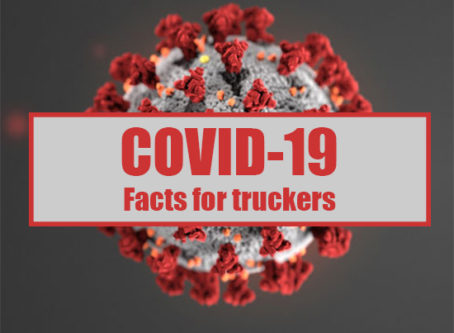UPDATE: Supreme Court denies petition against AB5
The U.S. Supreme Court will not hear California Trucking Association’s case against its state’s controversial worker classification law, Assembly Bill 5.
Announced along with several other orders on Thursday, June 30, the Supreme Court denied the California Trucking Association’s petition for a hearing.
The decision to not hear the case means that a previous ruling from the U.S. Court of Appeals for the Ninth Circuit stands and that a preliminary injunction preventing AB5 from being enforced on motor carriers will end.
AB5, which codified the ABC Test, makes it more difficult for a worker to be considered an independent contractor. Many in the trucking industry said the law will end the owner-operator model in the state. AB5 was passed into law in 2019, but the lawsuit had prevented it from affecting the trucking industry.
The California Trucking Association said the Supreme Court’s decision will hurt thousands of owner-operators and make the supply chain crisis worse.
“Gasoline has been poured on the fire that is our ongoing supply chain crisis,” the California Trucking Association said in a statement. “In addition to the direct impact on California’s 70,000 owner-operators who have seven days to cease long-standing independent businesses, the impact of taking tens of thousands of truck drivers off the road will have devastating repercussions on an already fragile supply chain, increasing costs and worsening runaway inflation.”
The Owner-Operator Independent Drivers Association, which filed an amicus brief in support of the California Trucking Association’s petition, also was disappointed by the decision.
“With AB5 now set to go into effect, thousands of owner-operators driving in California face an uncertain future,” OOIDA President Todd Spencer said. “California has provided no guidance to owner-operators about how they can work as independent contractors under this new scheme, and truckers will be at the mercy of the courts to interpret how the law will be applied.
“For truckers that have invested their blood, sweat and treasure to create their own businesses, it is dismaying that lawmakers and the courts are forging ahead with this radical policy that dismisses a beneficial business model that has been in place for decades. At the same time, we know this will not be the last word on the legality of AB5 and expect to participate in future challenges to the law.”
Meanwhile, the California Attorney’s General Office lauded the decision.
“We’re pleased with the court’s decision to reject this challenge to AB 5’s application to the motor carrier industry,” a spokesperson said. “At the California Department of Justice, we’ll continue to do our part to defend laws that are designed to protect workers and ensure fair labor and business practices.”
When asked about the next steps regarding the injunction, the California Attorney’s General office directed Land Line to the Ninth Circuit ruling.
“Should the Supreme Court deny certiorari, the mandate will issue immediately,” the Ninth Circuit wrote. “The parties shall advise this court immediately upon the Supreme Court’s decision.”
The California Trucking Association contends that AB5 violates the constitution and could force the end of the trucking industry’s owner-operator model. The solicitor general, however, in a brief filed on May 24 advised the court to deny the California Trucking Association’s petition, saying that AB5 would not have a significant impact on prices, routes or services.
AB5, which California passed into law in 2019, codified the ABC Test, making it difficult for companies to hire independent contractors for work that is inside the usual course of the hiring entity’s business.
The California Trucking Association points to the Federal Aviation Administration Authorization Act, or F4A, which prevents states from enforcing a law or regulation related to a price, route or service of motor carriers. The U.S. Southern District Court of California granted a preliminary injunction to stop the state from enforcing the law on motor carriers.
In 2021, the U.S. Court of Appeals for the Ninth Circuit ruled 2-1 that California’s AB5 “is a generally applicable labor law” and called for the removal of a preliminary injunction. The California Trucking Association then filed a petition to the U.S. Supreme Court. The Owner-Operator Independent Drivers Association was one of more than a dozen organizations to file amicus briefs in support of the California Trucking Association’s petition.
In May, the solicitor general recommended that the Supreme Court deny the California Trucking Association’s petition for a hearing. However, the Supreme Court is not bound to the recommendation. LL









